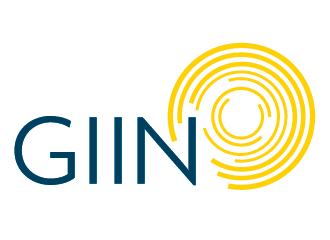Impact investing under the spotlight: 3 new studies released
Submitted by admin on Fri, 02/19/2016 - 15:20
Three recent reports, published by the OECD, the GIIN and Morgan Stanley, offer in-depth analyses of impact investing, defined by the Global Impact Investing Network as the ‘’investments made into companies, organizations and funds with the intention to generate social and environmental impact alongside a financial return”
The OECD, Social Impact Investment, Building the Evidence Base, February 2015
This publication provides a framework for assessing the social impact investment market and focuses on the need to build the evidence base. It highlights the importance of further international collaborations in developing global standards on definitions, data collection, impact measurement and evaluation of policies. In a fast-evolving new area, experience sharing between players in the market is also vital. International organisations such as the OECD can play an important role in facilitating these collaborations as well as conducting further analysis and data collection.
Morgan Stanely Institute for Sustainable Investing, Sustainable Reality: Understanding the Performance of Sustainable Investment Strategies, March 2015
Although some investors may believe sustainable investing requires a financial sacrifice, a new report from the Morgan Stanley Institute finds that investing in sustainability has usually met and often exceeded the performance of comparable traditional investments, both of an absolute and risk-adjusted basis, across asset classes and over time.
The GIIN, Impactbase Snapshot, an analysis of 300+ impact investing funds, April 2015ImpactBase Snapshot is a comprehensive analysis of the more than 300 funds on ImpactBase. The report provides an unprecedented look at the current intermediary landscape, providing information on fund activity, track record, social and environmental metrics, target returns, fundraising, and more.
As stated in the introduction of the OECD report, Impact investing has become increasingly relevant in today’s economic settings as social challenges have mounted while public funds in many countries are under pressure. New approaches are needed for addressing social and economic challenges, including new models of public and private partnership which can fund, deliver and scale innovative solutions from the ground up.
The report defines social impact investment as ‘’the provision of finance to organizations addressing social needs with the explicit expectation of a measurable social, as well as financial, return”.
Growing interest for Impact Investing
The social impact investment market has been growing significantly and has drawn increasing interest, even though it is still in its early stages of development. The report identifies four main factors explaining this growth:
- Growing interest by individual and institutional investors in tackling social issues at the local, national, or global level.
- The economic crisis has highlighted social and economic challenges facing countries across the globe
- Government are seeking more effective ways to address these challenges
- The growth of social enterprise
The report published by the Morgan Stanley Institute for Sustainable Investing challenges the view that sustainable investments underperform or have higher risks than traditional investments. The report surveys over 10,000 equity mutual funds based in the United States and argues that “investing in sustainability has usually met, and often exceeded, the performance of comparable traditional investments”
Analysing the impact investment funds
Finally, the report published by the GIIN is the first comprehensive analysis of the data in ImpactBase, a preeminent source of data on impact investment funds worldwide. The findings are based on data from 310 funds:
- Impact themes: 55% of the funds include ‘access to finance’ as an impact theme, 44% ‘access to basic services’ and 38% ‘employment generation’
- Metrics: 96% of the funds use performance metrics to quantify their social and environmental impact, of which over half track IRIS-compatible metrics
- Activity: Many of the funds report on average investment sizes. Fund focused on making environmental investments have much larger deal sizes (5x) than do those with a social focus*
- Fund Economics: the report presents the distribution of management fees, carried interest and hurdle rates by asset classes. The data suggests that the funds focused on developing markets tend to have higher management fees (2,5% on average), carried interest (19%) and hurdle rates (6,8%).
Press articles
Impact investments: becoming popular and making money, Forbes, March 25
New research points to growing appetite for impact, sustainable investing, DevexImpact, March 25
New OECD report shines spotlight on impact investing, Eco-Business
